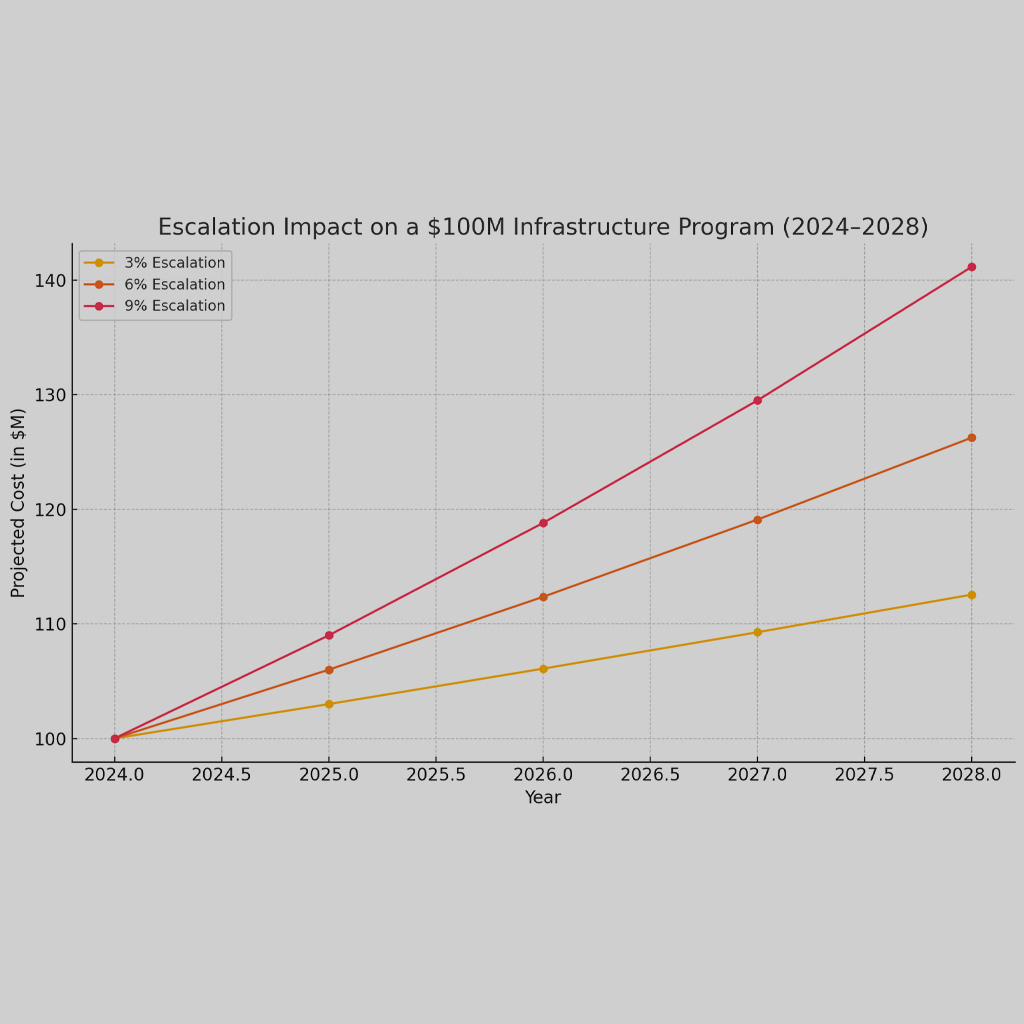“The secret of success is to do the common things uncommonly well.” -John D. Rockefeller
What is a Program Management Consultant (PMC) in a Capital Improvement Program (CIP)?
A Program Management Consultant (PMC) in a Capital Improvement Program (CIP) is a specialized entity tasked with overseeing and managing various aspects of capital improvement projects, which include construction, renovation, or expansion of public facilities such as schools, libraries, hospitals, roads, parks, and other essential community assets. The PMC ensures that these projects are completed on time, within budget, and to the satisfaction of stakeholders by focusing on key areas like budget oversight, schedule enforcement, compliance, vendor management, and stakeholder communication.
Why are PMCs Needed in CIP Programs?
- Efficiency and Expertise: The construction industry has a notorious reputation for delays and budget overruns, with 98% of megaprojects becoming delayed or over budget and only 10% of projects being completed on time and on budget. PMCs bring specialized expertise in project management that is often lacking in engineering firms, focusing on efficiency and effective resource allocation.
- Comprehensive Oversight: PMCs provide comprehensive oversight across all project phases, ensuring meticulous planning, execution, and monitoring. This holistic view helps in managing interdependencies between different phases, which is crucial for the success of the program.
- Improved Communication and Coordination: Effective communication and coordination are critical for project success, yet they are common points of failure in the construction industry. PMCs excel in maintaining clear and consistent communication among all stakeholders, which helps in preventing misunderstandings and ensuring that everyone is aligned with the project’s goals.
- Risk Management: PMCs systematically identify potential risks and implement strategies to mitigate them. This proactive approach helps in preventing issues that could derail the project timeline or increase costs.
- Cost Savings: By implementing effective budget management practices, PMCs can help save significant amounts of money. For example, FLAG managed to save approximately $26.8 million on their first 32 projects by adhering to strict budget management protocols.
Why Should PMCs Operate Independently from Engineers?
- Specialized Skills: Engineers are highly skilled in design and technical aspects but often lack expertise in project management, finance, compliance, and scheduling. These are areas where PMCs excel. Separating these responsibilities allows each party to focus on their core competencies, leading to better outcomes.
- Conflict of Interest: When engineering firms are tasked with both design and project management, there is a potential conflict of interest. By having an independent PMC, municipalities can ensure unbiased oversight and accountability, as the PMC acts solely in the interest of the project owner.
- Focused Accountability: An independent PMC can hold all parties accountable without any biases. This separation ensures that engineering firms can concentrate on delivering high-quality designs while the PMC handles project management, leading to improved project performance and reduced risk of delays and cost overruns.
- Enhanced Efficiency: With PMCs handling project management tasks, engineering firms are free to focus on innovation and technical excellence. This division of labor enhances overall efficiency and effectiveness, ensuring that each aspect of the project is handled by experts in that field.
Conclusion
PMCs play a vital role in CIP programs by bringing specialized project management expertise that ensures projects are completed on time, within budget, and to the satisfaction of stakeholders. Their independence from engineering firms prevents conflicts of interest, enhances accountability, and allows each entity to focus on their strengths. This collaborative approach is essential for overcoming the common pitfalls in the construction industry and achieving successful project outcomes.
At Front Line Advisory Group, we manage Capital Improvement programs to ensure they are completed on time and within budget. We make sure every dollar is used wisely to improve our community. For more information or to start your project, contact us at info@frontlineadvisorygroup.com.













